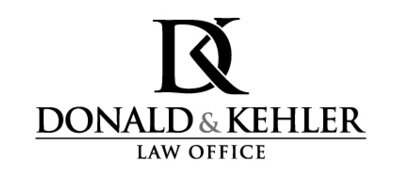Best Landlord & Tenant Lawyers in Brandon
Share your needs with us, get contacted by law firms.
Free. Takes 2 min.
Free Guide to Hiring a Real Estate Lawyer
List of the best lawyers in Brandon, Canada
About Landlord & Tenant Law in Brandon, Canada
Landlord and Tenant law in Brandon, Canada, is governed by provincial legislation under Manitoba's Residential Tenancies Act. This legal framework regulates the rights and responsibilities of both landlords and tenants to maintain a fair and stable housing market. The legislation provides guidelines on various aspects, including rent control, security deposits, lease agreements, dispute resolution, and eviction processes. Understanding these rules is essential for both landlords and tenants to ensure compliance and protect their respective interests.
Why You May Need a Lawyer
There are several situations where individuals may benefit from legal assistance in landlord and tenant matters. Common scenarios include disputes over security deposits, disagreements on lease terms, eviction notices, and issues concerning repairs and maintenance. Legal advice can also be crucial when negotiating lease agreements or dealing with rent increases, as it ensures the terms are lawful and fair. When conflicts escalate to small claims court or require mediation through the Residential Tenancies Branch, a lawyer can provide guidance and representation.
Local Laws Overview
In Brandon, key aspects of local landlord and tenant laws include the regulation of rent increases, which are typically capped annually unless otherwise approved by the Residential Tenancies Branch. Security deposits are also regulated, often capped at one month's rent, and must be returned with interest at the end of a tenancy, unless legitimate deductions are justified. Landlords are responsible for maintaining the rental property in a habitable condition, while tenants must adhere to the terms of the lease and ensure timely rent payments. The eviction process requires proper notice and justification, with tenants able to challenge unwarranted evictions through legal channels.
Frequently Asked Questions
What is the maximum allowable rent increase in Brandon?
In Manitoba, rent increases are regulated annually. Landlords must provide a minimum of three months' notice before enforcing a rent hike. However, the annual allowable increase is set by provincial guidelines and landlords seeking to increase above this threshold must apply for approval from the Residential Tenancies Branch.
How is a security deposit handled at the end of a tenancy?
Landlords must refund the security deposit within 14 days after a tenancy ends, with any deductions itemized and justified. The deposit should include interest calculated over the rental period at the rate prescribed by the province.
What are the responsibilities of a landlord regarding property maintenance?
Landlords must ensure the rental property is safe, clean, and in a good state of repair at the beginning and throughout the tenancy. This includes addressing any necessary repairs in a timely manner when reported by tenants.
Can a tenant end their lease early?
Tenants may be able to terminate their lease early under specific circumstances, such as domestic violence or health concerns, with proper notice provided. Subletting may also be an option, subject to landlord approval.
How can tenants dispute an eviction notice?
Tenants can dispute an eviction notice through the Residential Tenancies Branch by filing a claim and requesting a hearing. They should provide evidence and documentation to support their case.
Are verbal rental agreements legally binding?
While verbal agreements are legally binding, having a written lease agreement is highly recommended as it provides clear reference to the terms and reduces potential disputes.
What should a tenant do if the landlord refuses to make necessary repairs?
Tenants should document the issue by notifying the landlord in writing and keep records of all communications. If the landlord fails to address the repairs, tenants can file a complaint with the Residential Tenancies Branch.
When can a landlord legally enter a rented property?
Landlords must provide at least 24 hours' written notice before entering a rental unit for non-emergency reasons such as inspections or repairs. Entry should occur between 9 AM and 9 PM unless the tenant consents otherwise.
Is subletting allowed in Brandon?
Subletting is generally permitted but requires the landlord's consent, which cannot be unreasonably withheld. The tenant remains responsible under the original lease terms unless otherwise agreed upon.
What recourse is available if rent increases are deemed unfair?
Tenants can challenge unfair rent increases with the Residential Tenancies Branch, which will review the justification and legality of the increase in comparison to provincial guidelines.
Additional Resources
Individuals seeking further assistance can contact the Residential Tenancies Branch for mediation services and conflict resolution. Legal Aid Manitoba offers support for qualifying individuals who require legal representation. The Brandon Neighbourhood Renewal Corporation and local tenant advocacy groups may also provide resources and support for tenants and landlords.
Next Steps
If you need legal assistance in landlord and tenant matters, consider contacting a local lawyer experienced in this area of law. Gather all relevant documents, such as lease agreements, correspondence with your landlord or tenant, and any notices received. You can also reach out to the Residential Tenancies Branch for guidance on how to file a claim or seek mediation. Remember, addressing issues early can often lead to a more favorable and swift resolution.
Lawzana helps you find the best lawyers and law firms in Brandon through a curated and pre-screened list of qualified legal professionals. Our platform offers rankings and detailed profiles of attorneys and law firms, allowing you to compare based on practice areas, including Landlord & Tenant, experience, and client feedback.
Each profile includes a description of the firm's areas of practice, client reviews, team members and partners, year of establishment, spoken languages, office locations, contact information, social media presence, and any published articles or resources. Most firms on our platform speak English and are experienced in both local and international legal matters.
Get a quote from top-rated law firms in Brandon, Canada — quickly, securely, and without unnecessary hassle.
Disclaimer:
The information provided on this page is for general informational purposes only and does not constitute legal advice. While we strive to ensure the accuracy and relevance of the content, legal information may change over time, and interpretations of the law can vary. You should always consult with a qualified legal professional for advice specific to your situation.
We disclaim all liability for actions taken or not taken based on the content of this page. If you believe any information is incorrect or outdated, please contact us, and we will review and update it where appropriate.









